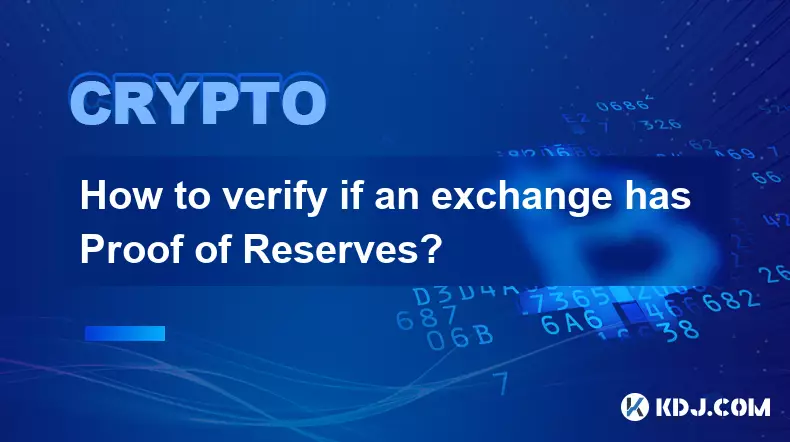-
 bitcoin
bitcoin $87959.907984 USD
1.34% -
 ethereum
ethereum $2920.497338 USD
3.04% -
 tether
tether $0.999775 USD
0.00% -
 xrp
xrp $2.237324 USD
8.12% -
 bnb
bnb $860.243768 USD
0.90% -
 solana
solana $138.089498 USD
5.43% -
 usd-coin
usd-coin $0.999807 USD
0.01% -
 tron
tron $0.272801 USD
-1.53% -
 dogecoin
dogecoin $0.150904 USD
2.96% -
 cardano
cardano $0.421635 USD
1.97% -
 hyperliquid
hyperliquid $32.152445 USD
2.23% -
 bitcoin-cash
bitcoin-cash $533.301069 USD
-1.94% -
 chainlink
chainlink $12.953417 USD
2.68% -
 unus-sed-leo
unus-sed-leo $9.535951 USD
0.73% -
 zcash
zcash $521.483386 USD
-2.87%
how ethereum smart contracts work
Ethereum smart contracts, programmed in Solidity and immutable once deployed, automate business processes on the Ethereum blockchain, offering automation, immutability, and transparency while posing challenges like complexity, security, and cost.
Oct 16, 2024 at 02:53 am

How Ethereum Smart Contracts Work
Ethereum smart contracts are self-executing programs that run on the Ethereum blockchain. They are used to encode business logic and rules into code, and then to automate the execution of those rules. This can save time and money, and can also help to improve accuracy and transparency.
How do Smart Contracts Work?Smart contracts are developed using a programming language called Solidity. Solidity is a high-level language that is specifically designed for writing smart contracts. Once a smart contract is written, it is compiled into bytecode. This bytecode is then deployed to the Ethereum blockchain.
Once a smart contract is deployed, it becomes immutable. This means that it cannot be changed or modified. The only way to change a smart contract is to deploy a new one.
Smart contracts can be used to automate a wide variety of tasks. For example, they can be used to:
- Manage financial transactions
- Create and manage digital assets
- Control access to resources
- Execute legal agreements
Smart contracts offer a number of benefits over traditional contracts. These benefits include:
- Automation: Smart contracts can automate the execution of tasks. This can save time and money, and can also help to improve accuracy and transparency.
- Immutability: Smart contracts are immutable. This means that they cannot be changed or modified. This can help to improve security and trust.
- Transparency: Smart contracts are transparent. This means that anyone can view the code and verify its functionality. This can help to build trust and confidence.
While smart contracts offer a number of benefits, there are also some challenges associated with their use. These challenges include:
- Complexity: Smart contracts can be complex to develop. This can make them difficult to understand and maintain.
- Security: Smart contracts are not immune to security vulnerabilities. If a smart contract is not properly designed and implemented, it could be exploited by hackers.
- Cost: Deploying a smart contract to the Ethereum blockchain can be expensive. This can make it difficult for businesses to use smart contracts for high-volume applications.
Disclaimer:info@kdj.com
The information provided is not trading advice. kdj.com does not assume any responsibility for any investments made based on the information provided in this article. Cryptocurrencies are highly volatile and it is highly recommended that you invest with caution after thorough research!
If you believe that the content used on this website infringes your copyright, please contact us immediately (info@kdj.com) and we will delete it promptly.
- The Big Screen & Honest Bytes: Navigating Movie Reviews, Film Ratings, and Genuine Insights in the Digital Age
- 2026-02-04 04:10:01
- Bitcoin's Next Chapter: From Current Crossroads to the Shadow of a $10,000 Prediction
- 2026-02-04 04:10:01
- Navigating the Tides: How Whales, HYPE, and the Hunt for Profit Shape Crypto's Future
- 2026-02-04 04:05:03
- Bitcoin's Big Apple Rollercoaster: Currency Doubts, Corporate Gambles, and the Shadow of the Crash
- 2026-02-04 04:00:01
- Binance Withdrawals Halted Amid FTX Panic; Market Volatility Continues
- 2026-02-04 03:55:01
- The Big Squeeze: Bitcoin, ZKP, and the Liquidity Crunch Driving Innovation
- 2026-02-04 00:40:02
Related knowledge

How to ensure your crypto purchase is safe from hackers?
Jan 28,2026 at 11:19pm
Secure Wallet Selection1. Choose hardware wallets for long-term holdings—devices like Ledger and Trezor isolate private keys from internet-connected s...

How to buy Avalanche (AVAX) with fiat currency?
Jan 29,2026 at 12:40pm
Choosing a Reliable Exchange Platform1. Identify exchanges licensed in your jurisdiction that support AVAX trading pairs with major fiat currencies li...

How to verify if an exchange has Proof of Reserves?
Jan 30,2026 at 06:39am
Understanding Proof of Reserves1. Proof of Reserves (PoR) is a cryptographic audit mechanism that demonstrates an exchange holds sufficient on-chain a...

How to leverage trade Bitcoin for beginners (Long/Short)?
Jan 29,2026 at 03:19pm
Understanding Bitcoin Price Movements1. Bitcoin’s price is heavily influenced by macroeconomic indicators such as interest rate decisions, inflation d...

How to set up an automatic savings plan with stablecoins?
Jan 29,2026 at 06:39am
Understanding Stablecoin Savings Mechanics1. Stablecoins are digital assets pegged to fiat currencies like the US dollar, designed to minimize volatil...

How to buy crypto using Revolut or Wise?
Jan 28,2026 at 11:00pm
Setting Up Your Revolut Account for Crypto Purchases1. Download the Revolut app and complete identity verification using government-issued ID and a se...

How to ensure your crypto purchase is safe from hackers?
Jan 28,2026 at 11:19pm
Secure Wallet Selection1. Choose hardware wallets for long-term holdings—devices like Ledger and Trezor isolate private keys from internet-connected s...

How to buy Avalanche (AVAX) with fiat currency?
Jan 29,2026 at 12:40pm
Choosing a Reliable Exchange Platform1. Identify exchanges licensed in your jurisdiction that support AVAX trading pairs with major fiat currencies li...

How to verify if an exchange has Proof of Reserves?
Jan 30,2026 at 06:39am
Understanding Proof of Reserves1. Proof of Reserves (PoR) is a cryptographic audit mechanism that demonstrates an exchange holds sufficient on-chain a...

How to leverage trade Bitcoin for beginners (Long/Short)?
Jan 29,2026 at 03:19pm
Understanding Bitcoin Price Movements1. Bitcoin’s price is heavily influenced by macroeconomic indicators such as interest rate decisions, inflation d...

How to set up an automatic savings plan with stablecoins?
Jan 29,2026 at 06:39am
Understanding Stablecoin Savings Mechanics1. Stablecoins are digital assets pegged to fiat currencies like the US dollar, designed to minimize volatil...

How to buy crypto using Revolut or Wise?
Jan 28,2026 at 11:00pm
Setting Up Your Revolut Account for Crypto Purchases1. Download the Revolut app and complete identity verification using government-issued ID and a se...
See all articles





















![[FULL STORY] My grandfather left me his [FULL STORY] My grandfather left me his](/uploads/2026/02/03/cryptocurrencies-news/videos/origin_6981f669e270a_image_500_375.webp)




















































